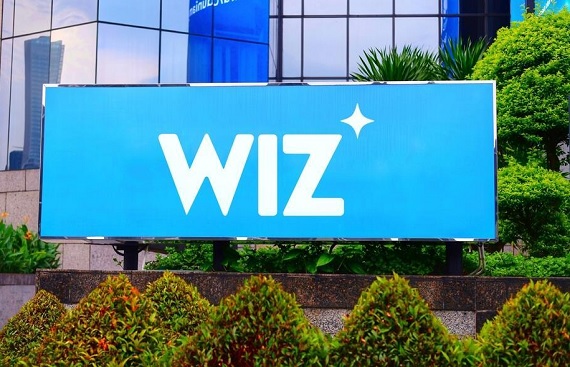Wiz's $32 Billion Win Signals Return of Tech Startup Acquisitions
By Team Startupcity | Tuesday, 25 March 2025, 22:35 Hrs

Start-up buyouts are booming, topping out in last week's monster $32 billion purchase of cyber-security start-up Wiz. The deal is the largest-ever takeout of a venture-backed start-up, and it portends a possible recovery in Silicon Valley deal-making after an extended drought. The activity implies increasing confidence in the Trump administration's style of antitrust policy and improved faith in the investment environment in technology.
Thus far in the year, there have been 11 venture-backed startup acquisitions worth more than $1 billion apiece, for a total of $54.5 billion. This total well exceeds earlier records for similar periods within a quarter. By contrast, during Q1 2023, there were only two deals of this nature, worth a combined $3.2 billion. The explosive rise in high-value deals signals a change in market attitudes and a renewed thirst for mergers and acquisitions (M&A) among venture-backed firms.
Google's deal to buy Wiz is merely one in a succession of blockbuster deals that have driven this trend. Over the past few weeks, SoftBank Group Corp. revealed a $6.5 billion purchase of chip designer Ampere Computing, Scopely agreed to buy Niantic's gaming business for $3.5 billion, and PepsiCo purchased a nearly $2 billion soda startup Poppi. AI companies have also witnessed huge deals, with Weights & Biases being bought by CoreWeave for $1.7 billion and AI company Moveworks being acquired by ServiceNow Inc. for $2.85 billion.
Industry observers anticipate that there are more deals waiting in the wings. Matt Murphy, a partner at Menlo Ventures and director of recently acquired Egynte, said that the time was right for M&A. There had been a disconnect between buyers' valuations and sellers' expectations in the past, but as acquisition activity has been in hibernation for years, the chasm has closed. The new level of transactions is viewed as a welcome relief for Silicon Valley investors, who have suffered a multi-year liquidity drought. IPOs and big startup sales had all but ground to a halt in recent years, depriving investors and workers of healthy exit options. Now, shifting market dynamics seem to be turning that trend around.
For Wiz, political considerations allegedly came into play to seal the deal.
Sources close to the deal say the change in the U.S. administration made Google decide to go ahead with the acquisition. The Trump administration is likely to have a softer approach to antitrust policies than the previous administration. Lina Khan, a prominent Big Tech critic and former Federal Trade Commission chair, has been replaced by Republican Andrew Ferguson. Ferguson has vowed to put an end to Khan's aggressive regulatory style but also said his agency will still have the power to block big mergers when needed.
While Ferguson's words eased concerns, however, some within the administration signaled a more restrictive policy toward corporate consolidation than in past Republican administrations. The ambiguous signals created uncertainty about future actions by regulators. Nevertheless, the impression that Trump's administration could be more conducive to business does seem to have encouraged buyers and sellers in the technology industry.
Another reason behind the recent wave of acquisitions is anticipation of heightened IPO activity in the second quarter of 2024. Fenwick partner Michael Brown, who was part of the Wiz deal, said the potential for IPOs gives startups more negotiating power when it comes to accepting acquisition offers. Startups with a potential IPO alternative can negotiate better sale prices, enhancing the deal terms of M&A transactions. Also, Brown highlighted that the recent years' slowdown in acquisitions left the buyers with plenty of cash reserves, making them more comfortable paying a premium for high-quality targets. For instance, the acquisition of Wiz was for cash.
The changing market dynamics have resulted in what most describe as a vibrant environment for venture-backed M&A. David Chen, Morgan Stanley's head of global technology investment banking, forecasted that acquisition activity will keep climbing. Instead of being concentrated mainly in regulatory drivers, Chen opined that overall market trends trade policy uncertainty and tariff issues among them—have led companies to be more willing to make acquisitions. Chen said that increased market uncertainty has deterred some startups from seeking IPOs and thus made them more open to acquisition offers. In addition, the post-election rally in share prices has provided buyers with more confidence to chase large deals.
Another major impetus for this wave of acquisitions is the aggressive searching by the industry for AI skills and technology. Jamie Leigh, a Cooley partner who counsels top tech companies, underscored the fact that corporations are willing to buy up prime AI talent to stay ahead of the game as the industry accelerates. She also noted increasingly favorable interest rate conditions and backlog demand after several years of below-average deal making as key factors in the latest M&A wave.
While there has been an increase in acquisitions, there are still difficulties for most startups. Over 1,000 technology firms valued at over $1 billion remain without an acquisition or public listing, and thus they are left uncertain. For such companies, the revival of startup acquisitions will decide whether they are financially successful or barely survive. As the current market scenario opens up new avenues, the future direction of the startup culture will be based on the resilience of regulatory policies and investors' faith in the startup ecosystem in the coming years.

